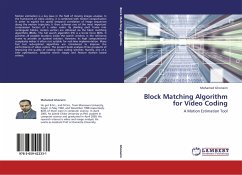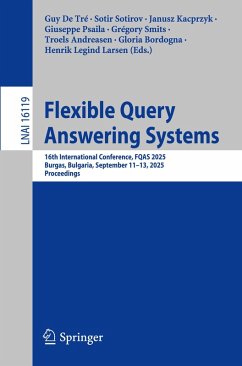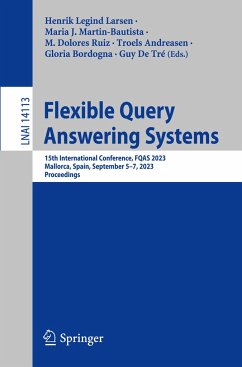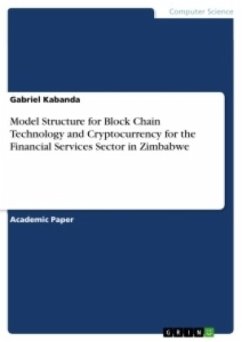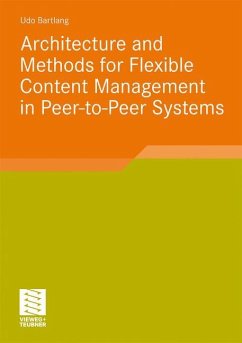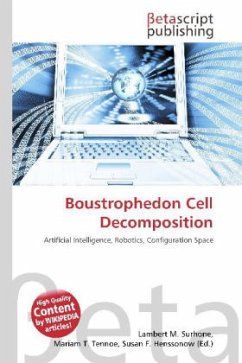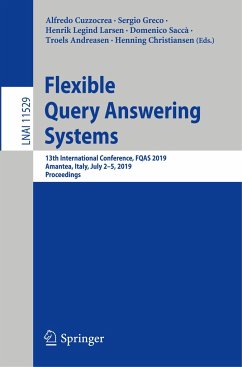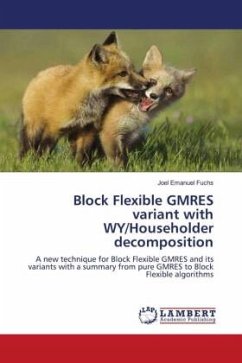
Block Flexible GMRES variant with WY/Householder decomposition
A new technique for Block Flexible GMRES and its variants with a summary from pure GMRES to Block Flexible algorithms
Versandkostenfrei!
Versandfertig in 6-10 Tagen
37,99 €
inkl. MwSt.

PAYBACK Punkte
19 °P sammeln!
A common problem in mathematics is the solving of linear systems. Finding an exact solution of a linear system is not affordable in most times; and not necessary, if we can choose a proper approximate. There are several families of methods to find such an approximate as techniques based on Krylov subspaces. All those techniques have in common, that they find a proper approximate in a Krylov subspace based on two main techniques we will present (FOM and GMRES), and enriched by a lot of variants of those two techniques (restarted, truncated, preconditioned etc.). All those variants appear in dua...
A common problem in mathematics is the solving of linear systems. Finding an exact solution of a linear system is not affordable in most times; and not necessary, if we can choose a proper approximate. There are several families of methods to find such an approximate as techniques based on Krylov subspaces. All those techniques have in common, that they find a proper approximate in a Krylov subspace based on two main techniques we will present (FOM and GMRES), and enriched by a lot of variants of those two techniques (restarted, truncated, preconditioned etc.). All those variants appear in dual implementations, namely in a Gram-Schmidt and a Householder implementation. This is true as long as linear systems with a single right-hand side are considered. Considering multiple right-hand sides, the present literature only presents Block GMRES techniques using Gram-Schmidt orthogonalization ('Block' implies the multiple right-hand side). This book closes this gap in literature by presenting a Flexible Block GMRES technique for linear systems with multiple right-hand sides using the Householder orthogonalization or - as it is called for multiple right-hand sides -- the WY decomposition.



